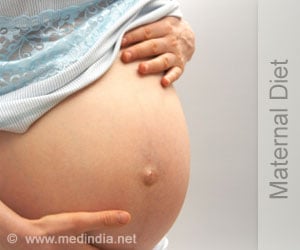A new study has found that more than 52 percent of pregnant French women drink alcohol during their pregnancies.
A new study has found that more than 52 percent of pregnant French women drink alcohol during their pregnancies.
The study also found that most of those women are uninformed about the risks alcohol may pose to their babies' health."Our results surprised us because we didn't think that the women were so massively going to answer that they were so ignorant of the dangers of alcohol during pregnancy," said Ingrid de Chazeron of the Centre Hospitalier Universitaire, who led the study.
The study compiled data from 837 pregnant women at public and private obstetric centers who participated in the study between July 2003 and June 2004.
The women responded to a survey that asked about their drinking patterns during pregnancy, and 52.2 percent said they had used alcohol - having at least one drink -during the time.
The researchers noted this was a "huge difference" from the United States, where only 12 percent of pregnant women report any alcohol use. Moreover, 13.7 percent of the participants said they had at least one binge-drinking episode where they had five or more drinks on one occasion.
de Chazeron and her colleagues said that drinking wine and beer is part of the "regular eating habits" in France and there is a lot of controversy over the safety of occasional drinking during pregnancy.
Advertisement
"First, there was not enough campaigning about the dangers of alcohol during pregnancy ... and [women] do not believe that small consumptions, even regularly, can influence the future of their child," she added.
The question of how much alcohol is safe to consume during pregnancy is not as controversial in the United States, where the advice from ob/gyns is mostly consistent.
"The common advice given by ob/gyns is that abstinence is the safest way to eliminate the possibility of your child having FAS," said Chemen Tate, M.D., chief resident of obstetrics and gynecology at Indiana University School of Medicine.
"When pressed [by patients], with 'c'mon, one drink won't hurt,' most ob/gyns would admit that one drink in nine months would not likely result in full-blown FAS, but we do not know the amount of alcohol it takes to cause any one of the fetal alcohol spectrum disorders. The potential outcome is definitely not worth the gamble," Tate added.
The study is published in the May issue of Alcoholism: Clinical and Experimental Research.
Source-ANI
SRM











